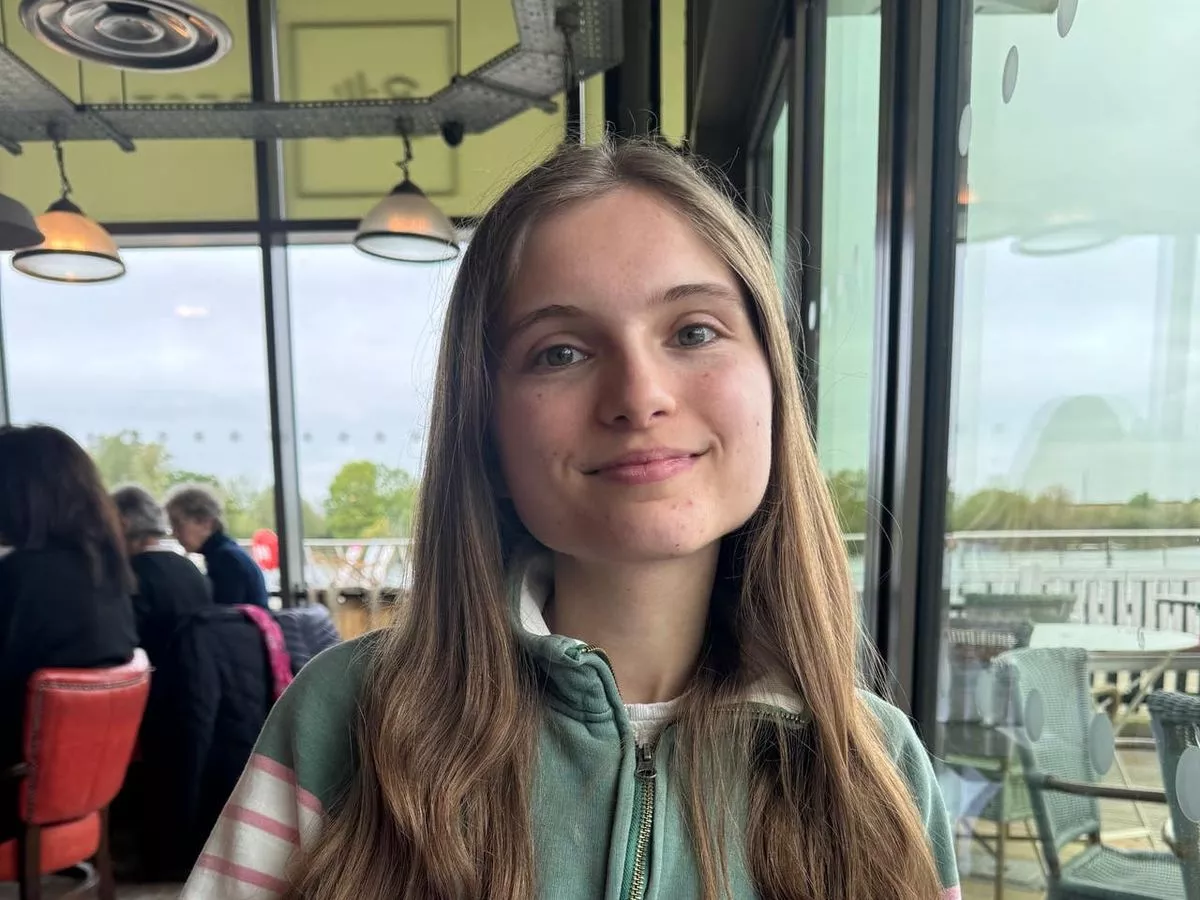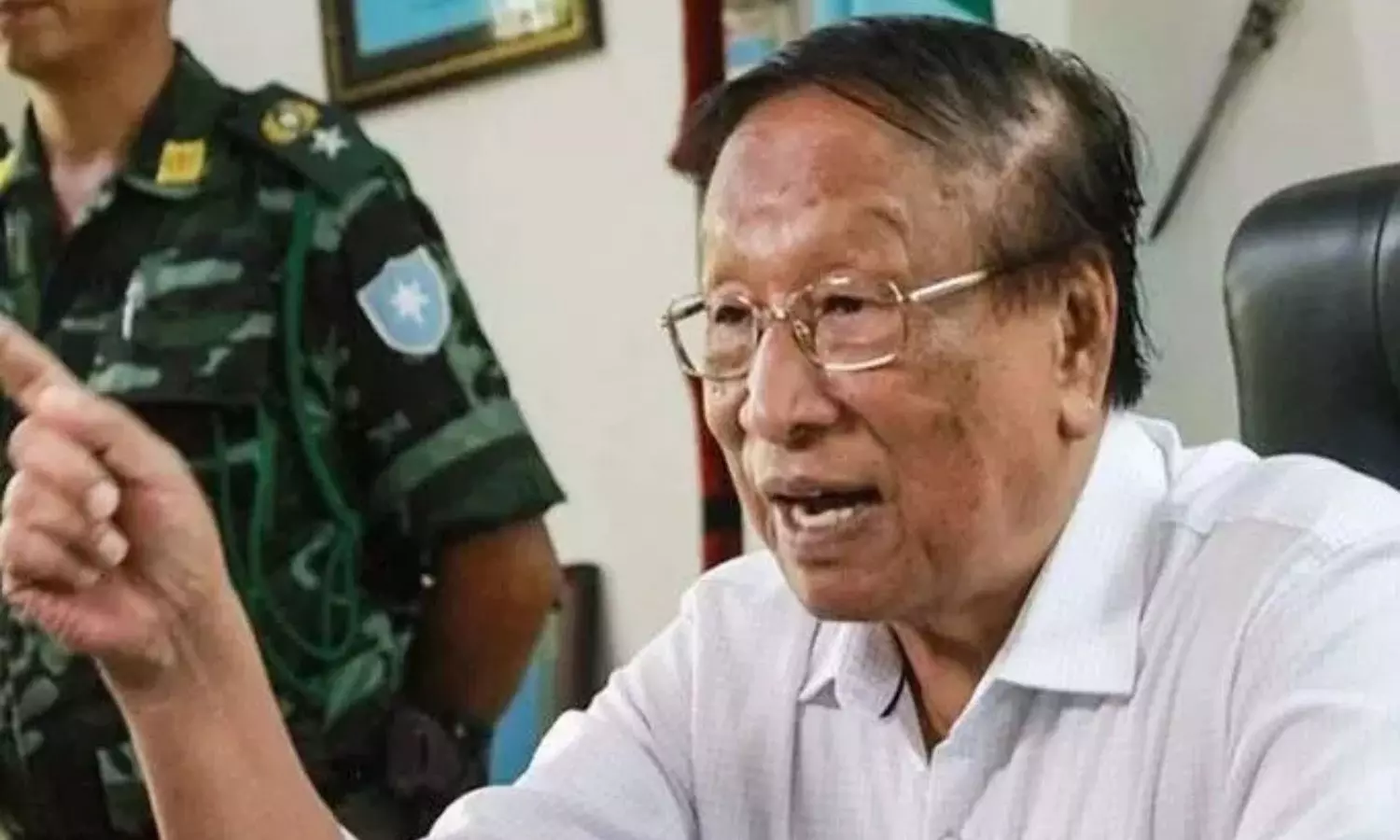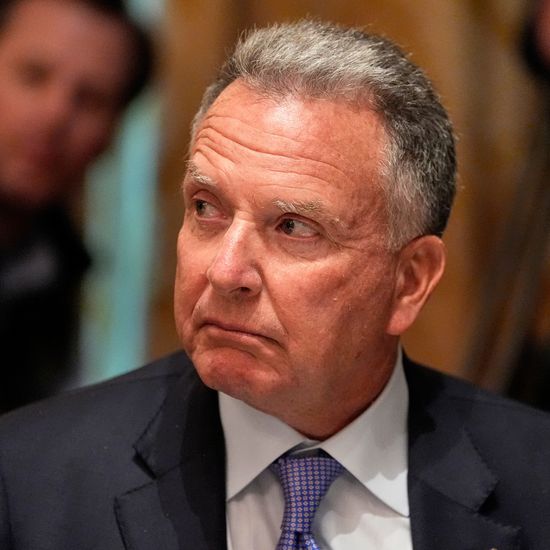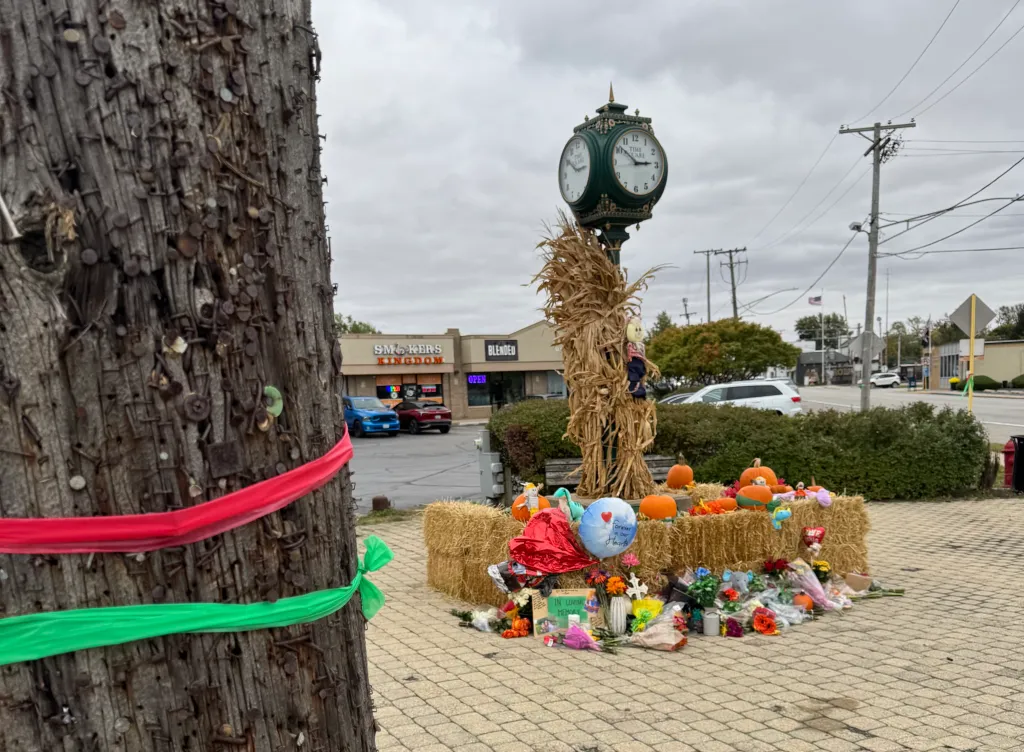Copyright dailystar

A woman who underwent treatment for a rare form of cancer , which triggered early menopause at just 15, has said she felt like she was "trapped in an 80-year-old's body". Ellie Waters-Barnes, now 24, was just 14 when she received the devastating diagnosis of Rhabdomyosarcoma, a rare soft tissue cancer, back in 2015. The first indication of her illness was a "small, kidney bean-sized lump" on her left buttock. As a teenager, Ellie felt "embarrassed" and kept her symptoms hidden from her parents for seven months. However, by the time her cancer was diagnosed, it had already advanced to Stage Four. In addition to the lump on her buttock, Ellie discovered lumps in the lymph nodes in her groin, suffered from severe constipation, had difficulty urinating, and experienced sharp pain in her left leg when running or playing football - two activities she loved. She didn't connect these symptoms, assuming she was simply going through a run of bad luck with health issues and injuries. Due to the location of the Rhabdomyosarcoma, the chemotherapy and radiotherapy Ellie underwent were concentrated on her pelvic area, causing damage to her reproductive organs. The treatment effectively stopped her puberty, and when her periods failed to return after treatment, it was confirmed that Ellie was experiencing early menopause, and was infertile. While Ellie has accepted her infertility, she has grappled with feelings of being "unwomanly" and "alien" compared to her contemporaries, and calls for more open dialogue surrounding the "very taboo topic" of premature menopause. "Over time, I've just learned not to care," Ellie, who is currently pursuing medical studies with aspirations of becoming an oncology doctor, revealed to PA Real Life. "I've just got to try and accept the body that I've been left with, and the main thing I try to do is to focus on what I can do, rather than what I can't or what I don't have, because there's nothing I can do to change it. I've just got to focus on what I can do and just make the most of the body that I've been left with." Ellie's cancer journey began with "a small, kidney bean sized lump that (she) discovered in (her) left butt cheek". "And of course, where it was, I didn't really mention it. I was a little bit embarrassed by it," she explained. "I didn't actually, to be honest, at the time, think much of it. And then over the months that followed, it just kept getting bigger and bigger. I probably had this lump for about six, seven months before I said anything, and by the seventh month, it was basically taking up the whole butt cheek. It was pretty bad." Alongside the lump on her bottom, Ellie discovered lumps in her groin lymph nodes, constipation which she subsequently discovered was caused by the tumour pressing against her rectum, difficulty urinating, and a sharp pain at the top of her left leg whilst running. "I just thought they were separate entities, and I was just really unlucky, and that I would wake up one day and they would all be gone," she said. "But obviously that didn't happen." Ellie initially spotted the lump in January 2015, but kept it from her parents until August 2015. During the following three weeks, she made repeated visits to her GP who believed the lump was an abscess and attempted to treat it with antibiotics. When the antibiotics proved ineffective, Ellie was referred to hospital for additional tests, where she eventually discovered she had cancer. Ellie received a diagnosis of Rhabdomyosarcoma – a rare form of soft tissue sarcoma that develops in the body's voluntary muscles, such as those in the arms, legs, head, and neck, according to Macmillan – in September 2015, at which stage the cancer had progressed to Stage Four, indicating it had spread to other areas of her body. Her treatment lasted 18 months, with Ellie explaining that doctors "had to literally pull out all the stops for this cancer", including nine months of intensive chemotherapy. "It was the sort of chemotherapy that just wipes you out, like physically, mentally," Ellie said. "My hair was gone, I couldn't eat, had to have a feeding tube, lost lots of weight. Really bad side effects." Seven months into her chemotherapy, Ellie began radiotherapy to her pelvis, which caused further side effects such as "terrible diarrhoea", burning and exhaustion. Fortunately, surgical intervention wasn't required as the tumour disappeared from scans within four months of commencing treatment, though 12 months of maintenance therapy followed to guarantee any lingering cancer cells were destroyed. Eventually, Ellie achieved remission, managed to return to school and started her path back to ordinary life. Nevertheless, her future appeared vastly different from what it had been prior to her diagnosis. Amongst the extensive catalogue of consequences from her chemotherapy and radiotherapy was premature menopause and sterility, especially due to the radiotherapy focusing on her pelvis, though Ellie explained she was "in survival mode at the time" and gladly accepted the gamble. "I didn't care how I was left, as long as I survived the cancer and made it out the other side, I didn't really care at that point about the repercussions," she said. Ellie was informed that if her periods failed to resume within six months of completing her treatment, it would confirm she had become menopausal. She was grappling with fatigue, aches and other symptoms, which she attributed to the after-effects of chemotherapy. As a 15 year old, she admitted that her understanding of menopause symptoms was limited – "I thought menopause meant no periods and maybe the occasional hot flush, and that was it" – and her mother had not yet reached this life stage either. However, Ellie's menstrual cycle did not return, leading her to start hormone replacement therapy (HRT) – a treatment designed to ease menopausal symptoms by replenishing declining levels of oestrogen and progesterone. "I'd not really properly gone through puberty before the treatment. "With the treatment, it completely went, and then I went through menopause. There was no time to catch up, or go through puberty again. Where I left off, that was it," Ellie shared. Returning to school proved particularly challenging when her peers were "talking about periods, boys, hormones, and sex". She felt like an "I felt like I was an 18-year-old trapped in an 80-year-old's body," she confessed. "I have a bit more of a childlike body compared to my peers: My breasts never really developed, I'm still quite skinny, scrawny, not very curvy. That, alongside the infertility, and then the fact I don't get periods, and I've gone through the menopause, made me feel very unwomanly. "It affected my body image a lot, and my self worth, I felt very undesirable. I thought I'd never be able to date anyone, because I just didn't think anyone would find me attractive in that way." The physical symptoms were equally challenging: whilst Ellie was preparing for her A-Levels, she experienced "terrible brain fog", exhaustion, aches, itching, and "could barely sit down for more than an hour because of the vaginal dryness". When lockdown arrived in 2020 and her A-Level examinations were scrapped, she embarked on her own research into premature menopause, learning that these were all recognised signs of the menopause and that her HRT dosage was insufficient to tackle them properly. Initially, she consulted an NHS hormone specialist but found it difficult to obtain the guidance she required. In desperation, Ellie spent £250 on a private menopause appointment in April 2020 and was eventually given hormone replacement therapy that proved effective. "Within two weeks," she said, "I felt like a new woman." While Ellie acknowledges that fertility issues can be "definitely a bit of a deal breaker" in romantic partnerships, she explains that she has personally come to terms with it. "I sort of just get on with menopause now, but I do sometimes think, when I get tired or I get brain fog or whatever: 'If only I had normal working ovaries, maybe I would be able to perform better in my general life and my work, I wouldn't have to remember every three days to change my patches and take hormones and all this and that'." Since September 2021, Ellie has been pursuing her medical degree at Keele University in Stoke-on-Trent, with aspirations to become a qualified doctor by August 2026. Her ambition is to specialise in oncology, drawing upon her personal journey to support others facing similar challenges. "For me, it's just all about acceptance – accepting my situation, making sure I don't bottle it up, talk to people about it. Then by doing stuff like this, raising awareness, it makes me feel like there's a positive out of a bad situation. A bit of a silver lining. "I'm able to help others, share my story and spread a bit of awareness. So that gives me a lot of solace in the situation that I'm in. I think particularly early menopause is a very taboo topic that people don't talk about. "People are quite ashamed about it. I always say to people that are going through a similar situation to me: Empower yourself with knowledge. Read everything that you can about early menopause, listen to podcasts, watch documentaries, because you are your own best advocate.. "By having that knowledge, you can get access to the treatment that you need and the support that you need. I wish that, all those years ago, I knew a bit more." Claire Taylor, chief nursing officer at Macmillan Cancer Support, explains: "Navigating treatment-induced menopause can be an incredibly challenging time – and many women are still going through this process feeling overwhelmed and alone. "For anyone confronting these changes and symptoms Macmillan is here for you every step of the way providing specialist advice and support through our Macmillan Support Line, Cancer Information and Support Centres and Online Community."



